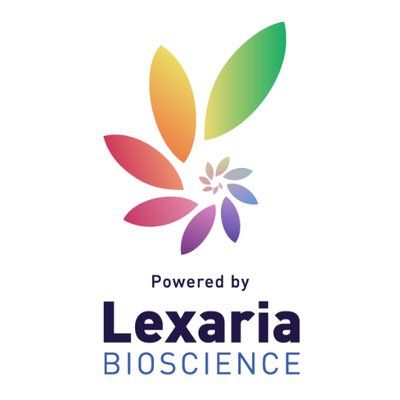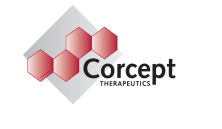预约演示
更新于:2025-05-07
Weight Gain
体重增加
更新于:2025-05-07
基本信息
别名 Gain, Weight、Gains, Weight、Increased body weight + [37] |
简介 Increase in BODY WEIGHT over existing weight. |
关联
20
项与 体重增加 相关的药物作用机制 GIPR激动剂 [+1] |
在研适应症 |
最高研发阶段批准上市 |
首次获批国家/地区 美国 |
首次获批日期2022-05-13 |
作用机制 5-HT1A receptor激动剂 [+3] |
最高研发阶段批准上市 |
首次获批国家/地区 美国 |
首次获批日期2002-11-15 |
靶点 |
作用机制 GR拮抗剂 [+1] |
最高研发阶段批准上市 |
首次获批国家/地区 美国 |
首次获批日期2000-09-28 |
436
项与 体重增加 相关的临床试验NCT06127914
A Multiphase Project to Improve Use of Responsive Feeding Among Vulnerable Mother-Infant Dyads
The goal of this clinical trial is to learn more about responsive infant feeding (recognizing baby's signs of hunger and fullness) in mothers and infant enrolled in government-funded maternal-child home visiting programs. The main questions it aims to answer are:
* What are the contributors and barriers to use of responsive infant feeding?
* How can we refine an intervention focused on responsive infant feeding (the Learning Early Infant Feeding Cues intervention) so that mothers will like it and learn skills to help their baby be healthy.
* Will the refined intervention improve use of responsive feeding and be feasible and acceptable to mothers and home visiting programs?
Participants will be asked to:
* Participate in focus groups to talk about their experiences feeding their baby.
* Participate in a study to learn about responsive feeding and how to use it with their baby. This study will start when mothers are in their final month of pregnancy and finish when their baby is 6 months old. Participation will include:
* Having someone come to the family home during a time when the baby is eating (either from the breast or the bottle). The mother will receive information on the baby's signs from an experienced coach.
* Agreeing to be video recording during the session when the baby is eating.
* Completing surveys online.
* What are the contributors and barriers to use of responsive infant feeding?
* How can we refine an intervention focused on responsive infant feeding (the Learning Early Infant Feeding Cues intervention) so that mothers will like it and learn skills to help their baby be healthy.
* Will the refined intervention improve use of responsive feeding and be feasible and acceptable to mothers and home visiting programs?
Participants will be asked to:
* Participate in focus groups to talk about their experiences feeding their baby.
* Participate in a study to learn about responsive feeding and how to use it with their baby. This study will start when mothers are in their final month of pregnancy and finish when their baby is 6 months old. Participation will include:
* Having someone come to the family home during a time when the baby is eating (either from the breast or the bottle). The mother will receive information on the baby's signs from an experienced coach.
* Agreeing to be video recording during the session when the baby is eating.
* Completing surveys online.
开始日期2026-01-01 |
申办/合作机构 |
NCT06216925
Teen Mom Study: A Confirmatory Pragmatic Cluster Randomized Controlled Trial
The goal of this clinical trial is to test the effectiveness of #BabyLetsMove - a 24-week mobile Health and peer health coaching intervention paired with the Special Supplemental Nutrition Program for Women, Infants, and Children (WIC) - to increase physical activity and reduce sedentary behavior in pregnant, Black teens in the Mississippi Delta. The main questions it aims to answer are:
* Does #BabyLetsMove increase objective moderate-to-vigorous physical activity and decrease sedentary behavior from ≤16 to 26- and 36-gestational weeks compared to usual WIC care alone?
* Does # BabyLetsMove decrease the rate of gestational weight gain and mean arterial pressure from ≤16 to 26- and 36-gestational weeks compared to usual WIC care alone?
* Is #BabyLetsMove a feasible and acceptable intervention according to the RE-AIM framework?
* Using the Practical, Robust Implementation and Sustainability Model and the Consolidated Framework for Implementation Research, what are the barriers to organizational uptake and how can strategies be improved for future testing?
Participants will be given three empirically supported behavior goals including (1) watching ≤2 hours of TV or other screen time per day, and (2) walking ≥10,000 steps per day - or - (3) engaging in ≥20 minutes of organized exercise per day.
Researchers will compare the #BabyLetsMove groups to the WIC care only groups to see if the #BabyLetsMove intervention improves traditional WIC care for bettering health outcomes ( amongst pregnant, Black teens in the Mississippi Delta.
* Does #BabyLetsMove increase objective moderate-to-vigorous physical activity and decrease sedentary behavior from ≤16 to 26- and 36-gestational weeks compared to usual WIC care alone?
* Does # BabyLetsMove decrease the rate of gestational weight gain and mean arterial pressure from ≤16 to 26- and 36-gestational weeks compared to usual WIC care alone?
* Is #BabyLetsMove a feasible and acceptable intervention according to the RE-AIM framework?
* Using the Practical, Robust Implementation and Sustainability Model and the Consolidated Framework for Implementation Research, what are the barriers to organizational uptake and how can strategies be improved for future testing?
Participants will be given three empirically supported behavior goals including (1) watching ≤2 hours of TV or other screen time per day, and (2) walking ≥10,000 steps per day - or - (3) engaging in ≥20 minutes of organized exercise per day.
Researchers will compare the #BabyLetsMove groups to the WIC care only groups to see if the #BabyLetsMove intervention improves traditional WIC care for bettering health outcomes ( amongst pregnant, Black teens in the Mississippi Delta.
开始日期2025-08-01 |
申办/合作机构 |
NCT06711627
Arkansas Community Engagement Alliance: Delivering Arkansas Perinatal Outcomes for Minority and Rural Women Through Innovative System Improvement to Create Equity
The overarching research question is: "Does the provision of healthy food during pregnancy reduce the proportion of women who experience excessive gestational weight gain compared with standard of care (SoC)?" To answer this question, the investigators will conduct a cluster-randomized controlled trial with 400 pregnant women who are enrolled in CenteringPregnancy classes. CenteringPregnancy classes (clusters) will be randomized to either the Food Provision arm or the SoC arm, with approximately 200 participants per arm. Participants randomized to the SoC arm will receive the standard clinical protocol for nutritional and gestational weight gain counseling recommended for all pregnant women, as well as $500 after delivery to be used specifically for baby items.Those randomized to the Food Provision arm will be provided the same nutritional and gestational weight gain counseling, as well as a total of $1000 during pregnancy to be used specifically for the purchase of healthy foods recommended in the nutritional counseling. Data for the primary outcome will be collected from birth records and from surveys conducted at baseline (pre-intervention), midpoint (between 24-36 weeks gestation), and post-intervention (
8 weeks post-partum).
8 weeks post-partum).
开始日期2025-06-01 |
申办/合作机构 |
100 项与 体重增加 相关的临床结果
登录后查看更多信息
100 项与 体重增加 相关的转化医学
登录后查看更多信息
0 项与 体重增加 相关的专利(医药)
登录后查看更多信息
6,062
项与 体重增加 相关的文献(医药)2025-12-01·Current Diabetes Reports
Mind in Metabolism – A Comprehensive Literature Review on Diabetes and its Connections to Obsessive Compulsive Disorder, Schizophrenia, and Bipolar Disorder
Review
作者: Hughes, Allyson S ; Cannon, Anja ; Jacoby, Caitlon
2025-08-01·Journal of Affective Disorders
A double-blind, placebo-controlled trial of exenatide for the treatment of olanzapine-related weight gain in obese and overweight adults
Article
作者: Welge, Jeffrey A ; DelBello, Melissa P ; Adler, Caleb M ; Blom, Thomas J ; Patino, Luis R ; Strawn, Jeffrey R
2025-07-01·European Journal of Medicinal Chemistry
Advances and challenges in immunosuppressive antibody drug conjugates
Review
作者: Tumey, L Nathan ; Yaseen, Aiman A
92
项与 体重增加 相关的新闻(医药)2025-04-21
点击蓝字 关注我们间变性淋巴瘤激酶(ALK)融合基因是非小细胞肺癌(NSCLC)重要的治疗靶点,对ALK酪氨酸酶抑制剂(TKI)治疗非常敏感,故被称为「钻石突变」。ALK-TKIs的安全性和疗效如马车之双轮,缺一不可。对于需要长期服药的ALK阳性NSCLC患者,管理好ALK-TKIs的副作用,提高患者治疗的依从性,保障患者的生活质量,这是实现长期治疗可持续性的前提。为促进业内同道间的知识共享与思维碰撞,《肿瘤瞭望》邀请石门县人民医院李锋教授、河南省肿瘤医院赵艳秋教授、龙岩市第一医院陈志勇教授、巩义市人民医院冯子龙教授和泽州县人民医院司新珍教授针对第三代药物洛拉替尼(Lorlatinib)的安全性以及CROWN研究5年随访结果对临床实践的启示进行深入解读。李锋教授大家好,我是来自石门县人民医院的李锋医生。洛拉替尼是晚期ALK阳性NSCLC治疗的重要药物,在2024年公布了多项研究数据,包括在2024年世界肺癌大会(WCLC)上更新的不良反应分析及管理成果。安全性是靶向治疗成功的关键因素之一,洛拉替尼随访5年数据中未出现新的安全信号,请您谈谈对洛拉替尼安全性数据的看法?赵艳秋教授大家好,我是来自河南省肿瘤医院赵艳秋医生。对于晚期ALK阳性NSCLC的靶向治疗,用药安全性也是临床医生制定治疗决策时的重要考量因素,而洛拉替尼的安全性优势已经得到多项临床研究反复印证。CROWN研究5年随访数据[1]显示,洛拉替尼治疗组的患者因不良事件(AE)而停药的发生率仅占5%;在未停药的患者中,大多数AE通过剂量调整和/或标准医疗干预可管可控;在剂量减量的患者(n=49)中,首次剂量降低的中位时间为21.6周(范围:2.1-281.9);剂量降低不影响洛拉替尼的疗效,在前16周内减少剂量的患者和未减少剂量的患者中,无进展生存(PFS)和至颅内进展时间相似。2024 WCLC以微型口头报告形式,发布了“洛拉替尼相关AE的动力学和管理策略:基于CROWN研究5年随访数据的分析”[2]。这项事后分析显示洛拉替尼的AE可管可控,长期治疗未发现新的安全性信号,并且在5年随访后治疗停药率仍然很低。大多数AE发生在开始治疗后的4个月内;≥3级AE发生在9个月内,很少有患者因AE而永久停药。任何级别高脂血症的至发生中位时间为15天,中位持续时间约为37个月;≥3级高脂血症的至发生中位时间约为6个月。对于任何级别的水肿、周围神经病变和中枢神经系统(CNS)AE,至发生中位时间为2~4个月,中位持续时间为8~18个月。对于仅体重增加,出现≥3级AE且持续时间超过3个月。这项事后分析从高脂血症、CNS AE及体重增加三个方面,更加详细地介绍了洛拉替尼的安全性特点。高脂血症大多为1-2级,可通过合并降脂药物进行管理高脂血症是洛拉替尼治疗期间最常见的AE,通常无症状,仅实验室检查异常,且大多数为1/2级。大多数高脂血症事件通过服用降脂药得到了有效控制和管理,仅9%需要在服用降脂药的同时加额外的干预措施。这些数据显示洛拉替尼在多数患者中有良好的耐受性和血脂安全性。CNS AE发生率并未随时间推移而增加,且仍然可控CNS AE绝大多数(86%)为1/2级。尤为重要的是,随着洛拉替尼治疗时间的延长,CNS AE发生率并未增加。半数以上的CNS AE无需任何药物干预,且有效的管理策略可减少CNS AE带来的影响。通过有效的管理策略、暂停给药或合并用药,60%的CNS AE得到解决。总体而言,洛拉替尼相关的CNS AE整体呈现出可逆可控、易于管理的特点,长期安全性有保障。体重增加发生率并未随着治疗时间延长而增加,大多可通过改变生活方式来控制44%的患者在洛拉替尼治疗期间出现体重增加,其中约半数为1/2级,且未观察到≥4级严重不良事件。尤为重要的是,体重增加的发生率并未随治疗时间的延长而升高,且无1例患者因体重增加永久停用洛拉替尼治疗。大多数体重增加可通过调整生活方式得到有效管理,35%的体重增加在没有任何医疗干预的情况下自行完全恢复。小结洛拉替尼长期使用的安全性良好,不良反应可管可控,因治疗相关AE所致停药率较低,常见AE多为1/2级。李锋教授不同ALK-TKIs的AE发生特征有一定的差异,应及时进行针对性管理。根据既往的研究结果,洛拉替尼的安全性良好,不良反应总体可管可控。请您结合相关指南和临床经验,谈一谈在临床实践中如何预防和管理洛拉替尼的不良反应,护航持续治疗之路,为实现长期生存获益提供保障。陈志勇教授我是来自龙岩市第一医院的陈志勇医生。洛拉替尼总体耐受性良好,具有不同的AE图谱,常见的不良反应包括高脂血症、CNS事件、体重增加、水肿和周围神经病变等。这些不良反应多为轻度或中度,通过剂量调整或对症治疗可得到缓解。在应用洛拉替尼治疗患者时,临床医生对AE进行严密监测、正确识别和及时管理十分重要。处理AE时应避免使用可能会与洛拉替尼发生药物相互作用的药物(如中、强效CYP3A诱导剂、强效CYP3A抑制剂及CYP3A底物)。《洛拉替尼特殊不良反应管理中国专家共识》为临床医生提供了处理AE的参考依据[3]。血脂管理启动洛拉替尼治疗前根据是否伴有既存血脂异常及其程度进行分层,以确定患者能否开始治疗、是否需要开始降血脂干预或调整当前降脂药;治疗期间定期监测血清胆固醇和甘油三酯水平,对于发生高脂血症的患者,根据AE级别进行不同干预。他汀类降脂药物选择的核心原则为避免药物相互作用。首选瑞舒伐他汀、匹伐他汀或普伐他汀,因为它们对影响洛拉替尼血药浓度的特定CYP450酶(如CYP3A4)的作用小,从而降低了潜在的药物相互作用风险。若需要在他汀类基础上增加治疗强度,可联合使用依折麦布或非诺贝特,次之可选择鱼油和烟酸。若他汀类联合非诺贝特治疗无效,可考虑依折麦布(降低胆固醇或低密度脂蛋白胆固醇的联合降脂药物治疗首选他汀类+依折麦布)。大部分高脂血症通过降脂治疗后都能得到有效管理。CNS AE管理在启动洛拉替尼治疗前应对患者进行评估,包括精神病史的询问和必要的CNS影像学监测;与患者、家属以及照护者沟通,告知他们CNS AE出现的可能性,若患者出现CNS事件时需立即报告。在治疗过程中,定期通过影像学检查监测CNS状态(开始治疗后每6周一次直至30个月,之后每3个月一次定期随访)。洛拉替尼治疗期间出现的大部分CNS AE是轻度的、可管理的和可逆的,大多数CNS AE能够在调整剂量或不进行临床干预的情况下缓解。剂量调整是CNS AE的有效管理方式,且不影响疗效。若CNS反应影响患者日常生活,则有必要进行治疗干预,需重视多学科会诊和交流,根据药物相互作用来选择对洛拉替尼影响最小的精神科药物。水肿管理水肿为洛拉替尼治疗的患者中最常报告的不良反应之一,多为轻度,以外周性水肿占比最大。当出现水肿时,首先排除其他潜在诱因。建议轻中度患者采取保守的物理措施,如使用压缩绷带或长袜、抬高下肢,以及改善生活方式等。发生重度水肿的情况下,尤其显著影响生活质量或表现为肺水肿时,可短期使用最小有效剂量的呋塞米,必要时洛拉替尼减量或暂时停药,密切观察。体重管理制定治疗方案前告知患者体重增加的风险,以确保患者做好准备,进行及时的饮食调整和适当的体育锻炼。每次随访时监测体重,每2个月咨询营养师,以纠正潜在的依从性问题。小结在使用洛拉替尼治疗患者的过程中,临床医生可参考《洛拉替尼特殊不良反应管理中国专家共识》,充分借鉴真实病例经验,对较常出现的高脂血症及较少出现的CNS AE等不良反应进行更精准的管理,通过合理监测、早期发现和及时干预等手段,使药物不良事件后果最小化,患者获益最大化。李锋教授对于ALK阳性NSCLC,亚洲患者和西方患者存在一定流行病学差异,且对于靶向药物的应答和耐受性也可能存在不同。亚裔人群在CROWN研究中占比较高,请您结合临床谈谈这项研究中亚裔人群的安全性及疗效数据对临床实践的启示。冯子龙教授大家好,我是巩义市人民医院的冯子龙医生。洛拉替尼在亚裔人群中的疗效和安全性数据对中国医生的临床用药具有指导意义,我们从多项临床研究中得到以下信息。亚裔人群的疗效和安全性双优根据2024年欧洲肿瘤内科学会(ESMO)发布的CROWN研究5年随访后的亚洲亚组事后分析[4],洛拉替尼治疗亚洲患者的中位PFS未达到(NR),5年PFS率为62.8%,客观缓解率(ORR)为81.4%,颅内(IC)ORR(IC-ORR)为69.2%。洛拉替尼组的中位颅内疾病进展时间(IC-TTP)为NR,无颅内进展率为97.6%。在较长随访期内的亚洲亚组中未观察到新的安全信号,并且安全性与Ⅲ期CROWN研究总体人群中观察到的安全性一致。亚裔人群和全球人群的疗效及安全性对比在疗效方面,根据2024年美国临床肿瘤学会(ASCO)发布CROWN研究5年随访结果和2024 ESMO发布的亚洲亚组事后分析,洛拉替尼用于ALK阳性NSCLC亚裔患者的疗效与意向治疗(ITT)人群高度一致。在安全性方面,目前研究发现亚洲人群接受洛拉替尼治疗后CNS AE发生率更低。全球Ⅱ期研究的亚组分析显示,亚洲人群中CNS AE(认知影响[12% vs 26.7%]和情绪影响[8.3% vs 17.4%])发生率明显低于非亚洲人群[5]。一项中国Ⅱ期研究显示,洛拉替尼用于经治ALK阳性晚期NSCLC中国人群的CNS AE的发生率为6.4%,也明显低于全球Ⅱ期研究中的数据(39%)[6]。延长生存期和保证生活质量双重优势CROWN研究中,一线洛拉替尼治疗ITT人群实现超长的PFS和PFS2,且颅内强效,长期治疗AE依然可管可控;亚裔患者的疗效和安全性数据与ITT人群一致。总体而言,一线洛拉替尼治疗实现了ALK阳性晚期NSCLC患者延长生存时间和保证生活质量的“双丰收”,这些数据极大地增强了我国临床医生的用药信心。小结洛拉替尼在亚裔人群与全球人群的疗效基本一致,分别体现在PFS、ORR和抗脑转移等多方面,CNS AE发生率更低。CROWN研究亚洲亚组的数据为中国临床医生的用药提供重要的证据支持。李锋教授CROWN研究5年随访结果创造了晚期肺癌最长中位PFS,证实了洛拉替尼在ALK阳性NSCLC的一线疗效,也影响着晚期ALK阳性NSCLC治疗模式的转变。请您结合临床实践,谈谈洛拉替尼对ALK阳性晚期肺癌治疗格局的影响。司新珍教授大家好,我泽州县人民医院的司新珍医生。随着ALK阳性晚期NSCLC的治疗选项日益多样化,如何在众多方案中为患者选择出生存获益最大的治疗策略,实现长期治疗的可持续性,成为临床医生和患者的关注焦点。最佳一线疗效三代ALK-TKI洛拉替尼拥有更强的抗肿瘤活性,更兼具强大的脑保护作用,更高的CNS穿透性,以及更广的抗ALK突变谱,在CROWN研究中获得迄今最长的PFS和PFS2数据。洛拉替尼以更佳的疗效和良好的安全性,占领ALK阳性晚期NSCLC一线靶向治疗新高地。3+X带来ALK+晚期NSCLC治疗格局变化洛拉替尼以突破60个月的超长中位PFS,创肿瘤靶向治疗领域新的里程碑。洛拉替尼作为一线治疗进展后,将“治疗接力棒”交予后续治疗方案后持续为患者带来获益,3+X序贯方案的PFS数据远超过二代ALK-TKI方案。3+X模式在疗效与安全性方面有双重保障,将成为ALK+晚期NSCLC患者实现长期且高质量生存的优选方案,重塑这类患者的治疗格局。3+X助力患者走向“临床治愈”肿瘤“治愈”定义为肿瘤患者治疗后无复发迹象,且生存时间至少5年。5年PFS作为总生存(OS)的重要替代指标,不仅标志着患者长期生存的潜力,更是衡量其生活质量的重要标尺。CROWN研究5年随访显示洛拉替尼组的中位PFS达60+个月,HR值进一步降至0.19,中位PFS2仍未达到。CROWN研究的PFS曲线提示ALK+晚期NSCLC患者的长期生存有望突破十年大关,预示着ALK+晚期NSCLC的慢病化管理和临床治愈的目标触手可及。小结洛拉替尼以突破60个月的超长mPFS,创肿瘤靶向治疗领域新记录,在降低脑转移风险、延长无瘤状态方面有显著优势,在亚洲人群中的有效性与安全性与整体人群结果一致,强势引领ALK+晚期NSCLC慢病化及走向“临床治愈”。李锋教授ALK阳性晚期NSCLC的全程管理需要合理优化序贯方案,打破脑转移的生存限制,提升患者的生活质量。洛拉替尼3+X序贯治疗为患者带来“治愈”曙光。在肿瘤慢病化管理的背景下,治疗安全性与不良反应管理的重要性日益凸显,合理监测,早期发现,及时干预,可使不良反应后果最小化,患者获益最大化。专家简介李锋教授副主任医师,肿瘤科31病区主任常德市抗癌协会副理事长常德市肿瘤化疗质控中心副主任湖南省抗癌协会临床肿瘤化疗专业委员会委员湖南省抗癌协会肿瘤生物治疗专业委员会委员湖南省抗癌协会黑色素瘤专业委员湖南省健康管理学会肿瘤康复专业委员会委员湖南省老年医学学会临床肿瘤专业委员会委员湖南省医促会临床肿瘤学与MDT委员会委员赵艳秋教授主任医师,二级教授1989年毕业于中山医科大学哈佛大学丹娜法伯癌症中心访问学者河南省肿瘤医院内科副主任河南省肿瘤医院肺癌首席专家组成员 中国药促会抗肿瘤药物临床研究专业委员会委员河南省生命关怀协会 肺癌专业委员会主委 作为PI参与和主持肺癌相关临床试验100多项,发表在JAMA,Lancet,JTO等高级别学术期刊上论文40余篇,最高影响因子120分陈志勇教授龙岩市第一医院肿瘤内科行政主任主任医师中国研究型医院学会肝癌治疗组委员福建省海峡医药卫生交流协会小细胞肺癌学组副组长福建省抗癌协会肿瘤内科治疗委员会常务委员福建省抗癌协会肿瘤免疫治疗专业委员会常务委员福建省海峡肿瘤防治协会精准医学专业委员会常务委员福建省中西医结合协会介入治疗专业委员会常务委员福建省抗癌协会肿瘤介入治疗专业委员会委员福建省化疗质控中心委员龙岩市医学会肿瘤内科分会主任委员龙岩市抗癌协会副会长龙岩市化疗质控中心副主任冯子龙教授副主任医师 巩义市人民医院肿瘤放疗病区主任 河南省老年学会肿瘤放疗分会常委河南省医院协会消化道肿瘤综合诊疗管理分会委员河南省抗癌协会肿瘤康复专业委员会青年委员河南省呼吸与重症学会肺癌分会青年委员郑州市抗癌学会放疗分会委员司新珍教授副主任医师 泽州县人民医院肿瘤科二病区主任中华中西医结合肿瘤专业委员会委员山西省抗癌协会胃癌专业委员会委员山西省抗癌协会化疗专业委员会委员山西省抗癌协会老年专业委员会委员晋城市医学会肺结节联盟委员会委员晋城市肿瘤专业委员会委员晋城市血液病专业委员会委员参考文献(上下滑动可查看)[1]Solomon BJ, et al. Lorlatinib Versus Crizotinib in Patients With Advanced?ALK-Positive Non-Small Cell Lung Cancer: 5-Year Outcomes From the Phase III CROWN Study. J Clin Oncol. 2024 May 31:JCO2400581.[2]Bauer T, et al. Kinetics and Management of Adverse Events Associated with Lorlatinib After 5 Years of Follow-Up in the CROWN Study. 2024 WCLC, MA06.08.[3]周清,陆舜,李勇,等.洛拉替尼特殊不良反应管理中国专家共识[J].中国肺癌杂志,2022,25(8):555-566.[4]Wu YL,et al. First-line lorlatinib vs crizotinib in Asian patients with ALK+non-small cell lung cancer (NSCLC): 5-year outcomes from the CROWN study. 2024 ESMO. Presentation Number 1279P.[5]Soo RA,etal. Efficacy and safety of lorlatinib in Asian and non-Asian patients with ALK-positive advanced non-small cell lung cancer: Subgroup analysis of a global phase 2 trial. Lung Cancer. 2022;169:67-76.[6] Lu S, et al. Lorlatinib for Previously Treated ALK-Positive Advanced NSCLC: Primary Efficacy and Safety From a Phase 2 Study in People's Republic of China. J Thorac Oncol. 2022;17(6):816-826.(来源:《肿瘤瞭望》编辑部)声 明凡署名原创的文章版权属《肿瘤瞭望》所有,欢迎分享、转载。本文仅供医疗卫生专业人士了解最新医药资讯参考使用,不代表本平台观点。该等信息不能以任何方式取代专业的医疗指导,也不应被视为诊疗建议,如果该信息被用于资讯以外的目的,本站及作者不承担相关责任。
临床结果CSCO会议上市后研究
2025-04-20
·汇聚南药
在日常生活中,老年人可能会遇到各种各样的健康问题,如头痛、胃痛、失眠、疲劳等。面对这些问题,许多老年人寻求各种方法来改善健康状况。而谷维素,这种几块钱一瓶的“神奇”药物,或许能为老年人带来意想不到的健康益处。谷维素的药理作用,不可不知谷维素是从米糠中提取的天然混合物,所以又称“米糠素”,是以三萜醇(烯)为主体的阿魏酸酯混合物。其具有两大功能:1、自主调节神经功能:谷维素能减少分泌平衡障碍,改善精神心理失调症状,稳定情绪、减轻焦虑及紧张状态,可以改善睡眠。2、调节间脑功能:谷维素激活与自主神经相关的下丘脑及大脑边缘系统。现代人饮食精细,吃的都是精制大米、精白面粉等“细粮”。在精加工的过程中,谷皮、糊粉层和胚芽被去除,导致谷维素、膳食纤维及B族维生素等天然营养素大量流失。除了糙米、全麦、玉米、青稞、高粱等全谷物,芸豆、绿豆等杂豆类、山药、芋头等块茎类,都属于粗粮。日常可以多吃一些。《中国居民膳食指南》推荐:健康成年人每天应摄入谷类食物200~300g。其中全谷物和杂豆类50~150g; 薯类50~100g。如果你有以下五种情况之一,可能意味着「植物神经功能紊乱」,需要额外补充谷维素了。谷维素:五类疾病常用谷维素主要作用于间脑的植物神经系统与分泌中枢,从而改善和调节植物神经功能失调、内分泌平衡障碍及精神失调等症状。1、焦虑、失眠老年人常常面临失眠的问题,这可能与植物神经功能紊乱有关。谷维素能够调节自主神经系统,减少内分泌平衡障碍,从而改善精神神经失调症状。对于轻中度的失眠,谷维素具有很好的疗效,尤其对中老年人因植物神经功能紊乱所引起的失眠具有明显效果。老年人可以在医生指导下,将谷维素与维生素B1或安神补脑液搭配使用,以改善睡眠质量。2、胃肠神经官能症如果你情绪紧张时容易腹痛、腹胀,或腹泻、便秘交替出现,伴随食欲减退、餐后饱胀感,做了胃肠检查却显示一切正常。可能是胃肠神经官能症。除了应用谷维素之外,还可以辨证搭配香砂养胃丸、参苓白术丸、保和丸等中成药以增强疗效。3、心脏神经官能症出现心悸、胸闷、心前区短暂刺痛或隐痛,伴有焦虑、多汗、乏力,但是心电图、冠脉CT、心脏彩超等专业心脏检查显示无器质性异常时,多考虑心脏神经官能症。也可以通过补充谷维素来缓解症状。辨证搭配生脉饮、稳心颗粒、参松养心胶囊等中成药效果更佳。4、经前期综合征有些女性的朋友在来月经之前会出现烦躁、焦虑、乳房胀痛、头痛、恶心呕吐、食欲不振、水肿等表现。这类症状统称为“经前期综合征”。补充一点谷维素也能缓解。辨证搭配乌鸡白凤丸、柴胡疏肝丸、逍遥丸等中成药效果更佳。5、更年期综合征一到更年期,特别容易出现焦虑、急躁、易怒、心悸失眠、潮热盗汗等一系列症状。此时也可以尝试补充谷维素。同时,还可辨证应用坤泰胶囊、更年安颗粒、坤宝丸、灵莲花颗粒等中成药。此外,不少现代研究证明,谷维素还有辅助降血脂、减轻心绞痛、治疗多发性口腔溃疡、治疗小儿异食癖等多种作用。谷维素的用药禁忌,不可不记1、特殊人群不宜服用:胃及十二指肠溃疡者,不宜服用谷维素。2、可能出现不良反应:服用谷维素后,偶有患者出现胃部不适、恶心、呕吐、口干、疲乏、皮疹、乳房胀痛、油脂分泌过多、脱发、体重增加等不良反应,停药后症状可消失。3、注意服用体位:不可躺着服用谷维素,因谷维素容易黏附食道,刺激食道壁。服药期间,不要进食辛辣刺激食物。服用谷维素有讲究谷维素作为一种天然提取物,其安全性已获广泛认可。说明书推荐谷维素日剂量为10mg~60mg,满足日常养护需求。但研究显示,为获更显著益处,可能需更大剂量。针对老年人,结合个人状况及专业评估,剂量可调整至300mg~600mg。为减少副作用风险,建议分次服用,并密切关注大剂量用药的副作用及实际效益。谷维素建议饭后服用,以促进吸收并减少胃肠刺激。与维生素E、辅酶Q10等亲脂性抗氧化剂联合使用,可发挥协同作用,增强效果。谷维素以其多样的生物活性,在老年健康管理中展现巨大潜力,合理补充有助于缓解慢性疾病症状,延缓衰老,提升生活质量。未来,谷维素在老年健康领域的应用前景将更加广阔。来源丨医护多药学学霸综合整理 喜欢我们文章的朋友点个“在看”和“赞”吧,不然微信推送规则改变,有可能每天都会错过我们哦~免责声明“汇聚南药”公众号所转载文章来源于其他公众号平台,主要目的在于分享行业相关知识,传递当前最新资讯。图片、文章版权均属于原作者所有,如有侵权,请在留言栏及时告知,我们会在24小时内删除相关信息。信息来源:医护多药学学霸往期推荐本平台不对转载文章的观点负责,文章所包含内容的准确性、可靠性或完整性提供任何明示暗示的保证。
2025-04-09
·药学进展
“点击蓝字 关注我们绿叶制药抗抑郁1类创新药若欣林® 在中国澳门获批上市 PPS 2025年4月07日,上海——绿叶制药集团宣布,其自主研发的1类创新药若欣林®(盐酸托鲁地文拉法辛缓释片)正式获得中国澳门药物监督管理局的上市批准,用于治疗抑郁症。若欣林®是中国首个自主研发并拥有自主知识产权、用于治疗抑郁症的化药1类创新药。临床前研究表明,若欣林®对于5-羟色胺(5-HT)、去甲肾上腺素(NE)和多巴胺(DA)均具有再摄取抑制作用;另有PET/CT研究已证实若欣林®可与大鼠和健康受试者脑内DA转运体结合,为其三重再摄取抑制作用再添强证[1]。若欣林®的3期临床研究结果证实:其能够全面、稳定的治疗抑郁症,显著改善患者焦虑状态、阻滞/疲劳症状、快感缺失和认知能力,促进社会功能恢复;而且具有良好的安全性和耐受性,不引起嗜睡,不影响性功能、体重和脂代谢。一直以来,抑郁症伴随高复发率、高自杀率、高致残率,过往抗抑郁药虽然总体有效,但是存在明显未满足的临床治疗需求:大多患者接受药物治疗后仍有残留症状,主要包括焦虑、认知损害、疲劳、快感缺失等,严重损害社会功能,并显著加快抑郁症的再次复发[2-5],另外,易引发性功能障碍、体重增加、情感迟钝、嗜睡等不良反应,影响患者的治疗依从性,也成为导致预后差的重要因素[6,7]。若欣林®自2022年11月在中国获批上市以来,疗效和安全性不断获得临床认可,已成为近年来国内增长最快的抗抑郁新药之一,当前累计服务超过3万名患者;2024年底,若欣林®通过谈判首次纳入《国家基本医疗保险、工伤保险和生育保险药品目录(2024年)》,有望提升创新可及、造福更多患者;此外,若欣林®用于治疗广泛性焦虑障碍的3期临床试验也在进行中。关于绿叶制药集团绿叶制药集团是致力于创新药物的研发、生产和销售的国际化制药公司。绿叶制药在中国、美国和欧洲设有研发中心,拥有超过20个中国在研药物和10多个海外在研药物。绿叶制药在微球、脂质体、透皮释药等先进药物递送技术领域达到国际先进水平,在新分子实体、生物抗体领域收获多项创新成果,并在细胞治疗、基因治疗等领域进行了积极布局和开发。绿叶制药深度布局全球供应链体系,已在全球建有8大生产基地并建立了与国际接轨的GMP质量管理和控制体系。公司现有30余个上市产品,产品覆盖肿瘤、中枢神经系统、心血管、消化与代谢等治疗领域;业务遍及全球80多个国家和地区,其中包括中国、美国、欧洲、日本等全球主要医药市场,以及高速增长的各地新兴市场。 参考文献:[1]. Huang, Z., Wu, J., Guan, Y. et al. PET/CT study of dopamine transporter (DAT) binding with the triple reuptake inhibitor toludesvenlafaxine in rats and humans. Eur J Nucl Med Mol Imaging 51, 2638–2648 (2024). https://doi-org.libproxy1.nus.edu.sg/10.1007/s00259-024-06700-2.[2]. Rush AJ, Trivedi MH, Wisniewski SR, et al. Acute and longer-term outcomes in depressed outpatients requiring one or several treatment steps: a STAR*D report. Am J Psychiatry. 2006 Nov;163(11):1905-17.[3]. Nierenberg AA, Husain MM, Trivedi MH, et al. Residual symptoms after remission of major depressive disorder with citalopram and risk of relapse: a STAR*D report. Psychol Med. 2010 Jan;40(1):41-50.[4]. 肖乐, 丰雷, 朱雪泉, 等. 中国抑郁症患者急性期治疗后残留症状的现况调查 [J] . 中华精神科杂志,2017,50 (03): 175-181.[5]. Judd LL, Akiskal HS, Maser JD, et al. Major depressive disorder: a prospective study of residual subthreshold depressive symptoms as predictor of rapid relapse. J Affect Disord. 1998 Sep;50(2-3):97-108.[6]. Carvalho AF, Sharma MS, Brunoni AR, et al. The Safety, Tolerability and Risks Associated with the Use of Newer Generation Antidepressant Drugs: A Critical Review of the Literature. Psychother Psychosom. 2016;85(5):270-88.[7]. Zhu Y, Wu Z, Sie O, et al. Causes of drug discontinuation in patients with major depressive disorder in China. Prog Neuropsychopharmacol Biol Psychiatry. 2020 Jan 10;96:109755.文章来源:绿叶制药美编排版:史鑫宇文章审核:周碧远 史鑫宇 罗琪【免责声明】以上内容来源于互联网,不代表本平台立场或观点;如有侵犯作者著作权,请及时与我们联系(Tel:025-83271227,或直接在微信平台留言),我们将及时更正或删除。《药学进展》杂志由国家教育部主管、中国药科大学和中国药学会共同主办,中国科技核心期刊(中国科技论文统计源期刊)。刊物以反映药学科研领域的新方法、新成果、新进展、新趋势为宗旨,以综述、评述、行业发展报告为特色,以药学学科进展、技术进展、新药研发各环节技术信息为重点,是一本专注于医药科技前沿与产业动态的专业媒体。《药学进展》注重内容策划、加强组稿约稿、深度挖掘、分析药学信息资源、在药学学科进展、科研思路方法、靶点机制探讨、新药研发报告、临床用药分析、国际医药前沿等方面初具特色;特别是医药信息内容以科学前沿与国家战略需求相合,更加突出前瞻性、权威性、时效性、新颖性、系统性、实战性。根据最新统计数据,刊物篇均下载率连续三年蝉联我国医药期刊榜首,复合影响因子1.216,具有较高的影响力。《药学进展》编委会由国家重大专项化学药总师陈凯先院士担任主编,编委由新药研发技术链政府监管部门、高校科研院所、制药企业、临床医院、CRO、金融资本及知识产权相关机构近两百位极具影响力的专家组成。联系《药学进展》↓↓↓编辑部官网:pps.cpu.edu.cn;邮箱:yxjz@163.com;电话:025-83271227。欢迎投稿、订阅!往期推荐聚焦“兴药为民·2023生物医药创新融合发展大会”“兴药为民·2023生物医药创新融合发展大会”盛大启幕!院士专家齐聚杭城,绘就生物医药前沿赛道新蓝图“兴药强刊”青年学者论坛暨《药学进展》第二届青年编委会议成功召开“兴药为民·2023生物医药创新融合发展大会”路演专场圆满收官!校企合作新旅程已启航我知道你在看哟
上市批准临床3期
分析
对领域进行一次全面的分析。
登录
或

Eureka LS:
全新生物医药AI Agent 覆盖科研全链路,让突破性发现快人一步
立即开始免费试用!
智慧芽新药情报库是智慧芽专为生命科学人士构建的基于AI的创新药情报平台,助您全方位提升您的研发与决策效率。
立即开始数据试用!
智慧芽新药库数据也通过智慧芽数据服务平台,以API或者数据包形式对外开放,助您更加充分利用智慧芽新药情报信息。
生物序列数据库
生物药研发创新
免费使用
化学结构数据库
小分子化药研发创新
免费使用






